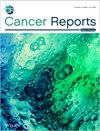A Systematic Review of Immune Cell Roles in Breast Cancer Immunotherapy
Abstract
Background
Breast cancer (BC) is the most prevalent malignancy among women and is associated with high mortality and significant clinical challenges. Although conventional treatments such as surgery, chemotherapy, and radiotherapy have significantly improved patient survival, their efficacy remains limited by severe side effects and treatment resistance. In recent years, advances in immunotherapy have underscored the pivotal role of immune cells in treating BC.
Recent Findings
This systematic review summarizes the current knowledge on the roles of immune cells within the BC tumor microenvironment (TME), including their phenotypes, functions, and implications for immunotherapy. Following PRISMA guidelines, 71 studies published between 2010 and 2024 were analyzed. The results indicate that immune cell populations—such as tumor-associated macrophages (TAMs), tumor-infiltrating lymphocytes (TILs), natural killer (NK) cells, dendritic cells (DCs), and myeloid-derived suppressor cells (MDSCs)—are integral to tumor progression and therapeutic response. However, their functional heterogeneity and plasticity remain key obstacles to the development of effective and personalized immunotherapeutic strategies.
Conclusion
Further research is needed to clarify the mechanisms governing immune cell behavior within the BC TME and to advance precision immunotherapy. Such insights will lay the foundation for individualized treatment approaches, ultimately improving patient outcomes and quality of life (QoL).


 求助内容:
求助内容: 应助结果提醒方式:
应助结果提醒方式:


